With emerging economies’ demand for food on the rise and food supply pressurized by extreme weather events, are we heading toward a global food crisis, as predicted by the United Nations? Or will new and improved modes of food production and marketing save the day? Throughout an eight course menu of debates, Debating Development will serve you a selection of expert speakers from international institutes, civil society and academia engaging with these and related questions. Our speakers will cover different topics, with food security as the central theme. The discussions will be moderated by the editorial staff of Mo* Magazine.
Tuesday 8 October - Small scale agriculture or agricultural industry: who will bring us enough food?
Vandana Shiva (environmental and global justice activist and writer, India)
Alexander Woollcombe (Bill & Melinda Gates Foundation, United Kingdom)
Moderator: Alma De Walsche
The Food and Agriculture Organization of the United Nations (FAO) estimates that worldwide 870 million people were chronically undernourished in 2010-2012. The vast majority of these people live in developing countries. Additionally, processes of urbanization, population growth and changing consumption patterns in upcoming economies are boosting food demands worldwide. Is the global food system capable of feeding all these mouths?
In this debate Dr. Vandana Shiva, an Indian environmental activist and eco-feminist, and Alexander Woollcombe of the Bill and Melinda Gates Foundation, will discuss which agricultural model, small-scale or industrial, is most sustainable and appropriate to feed the world.

Time Magazine identified Dr. Shiva as an environmental “hero” in 2003 and Asia Week has called her one of the five most powerful communicators of Asia. In November 2010, Forbes magazine identified Dr. Vandana Shiva as one of the top Seven most Powerful Women on the Globe. Among her many awards are the Alternative Nobel Prize (Right Livelihood Award, 1993), Order of the Golden Ark, the Global 500 Award of the UN, the Earth Day International Award, the Lennon ONO grant for peace award by Yoko Ono in 2009, the Sydney Peace Prize in 2010, the Doshi Bridgebuilder Award, the Calgary Peace Prize and the Thomas Merton Award in the year 2011, the Fukuoka Award and The Prism of Reason Award in 2012.
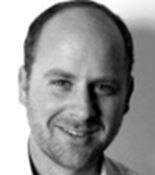
Shiva, V. The law of the seed, Navdanya Publications (2013)
Wegner, L., Zwart, G., Who will feed the world?, Oxfam Research Reports (2011)
Bill and Melinda Gates Foundation, Agricultural Development - Strategy Overview (2013)
EU legislation on the marketing of seed and plant propagating material
Interview Vandana Shiva by MO* Magazine
Tuesday 15 October - Food aid in conflict zones: curse or cure?
Zlatan Milisic (World Food Programme, Italy)
Simon Levine (Overseas Development Institute, United Kingdom)
Moderator: Bert Jacobs
PPT Zlatan Milisic
Is the delivery of food aid in conflict zones a life saver or does it rather contribute to or even exacerbate existing tensions? In their mission to alleviate human suffering during complex emergencies, aid agencies claim to be neutral actors. However, anecdotal evidence suggests that food aid is often stolen and actually contributes to the provisioning of fighting parties. And what about the impact of food aid on the local economy? Do humanitarian arguments outweigh the risks and consequences of food aid in conflict zones?
In this debate, Zlatan Milisic of the World Food Program (WFP) will argue in favour of food aid in conflict zones whereas Simon Levine (ODI) will go deeper into the challenges and unintended consequences.
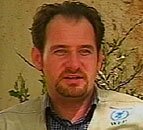

World Food Programme, Humanitarian Principles, World Food Programme Policy Issues (2004)
Tuesday 22 October - Insertion into global food value chains: boon or bane for developing countries?
Miet Maertens (KULeuven, Belgium)
Arne Schollaert (Oxfam-Wereldwinkels, Belgium)
Moderator: Maarten Lambrechts
ppt Miet Maertens
Thanks to globalisation, global food production networks and trade have spread and fragmented: now more than ever, producers, buyers, wholesale sellers and consumers of food are physically separated, operating in different corners of the world. Growing attention to food safety standards, labour conditions and the environment is changing the ways these value chains operate and are governed. As developing countries become active participants in increasingly modernised food value chains, especially on the production side, questions arise about the welfare implications this participation brings.
Our keynote, Miet Maertens (KU Leuven) has conducted research which suggests that high-value food supply chains may hold significant benefits for rural households in developing countries. Arne Schollaert (Oxfam WW) will bring to the table critical questions about the concentration of power in modern food value chains and the far-from-optimal conditions under which producers participate.

Miet Maertens is Professor of Bioeconomics at the Faculty of Bioscience Engineering and a research fellow at LICOS (Centre for Institutions and Economic Performance), both of the KU Leuven. She holds Masters in Agricultural Engineering and Economics from the KU Leuven and a PhD degree from the Georg-August University of Göttingen. Ms Maertens's work includes research on land use, food standards, international trade and global value chains, with extensive fieldwork in South-East Asia, Latin America and Sub-Saharan Africa. She has published widely in internationally renowned journals and book volumes. A list of her publications and recent research projects she has been involved in can be found here.
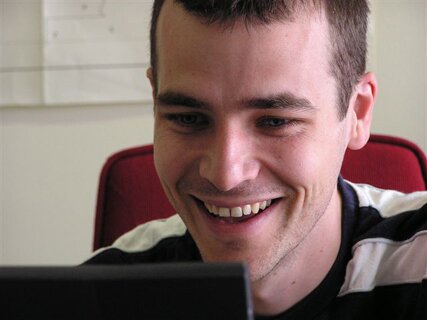
Arne Schollaert is Head of the Policy and Development department at Oxfam Wereldwinkels (‘World Shops’). He holds a PhD in Social Economics from the University of Ghent. Mr Schollaert has worked with Oxfam on various fair trade campaigns, including GROW!, Behind the Brand and World Fair Trade Day. In his writings, Mr Schollaert has drawn attention to the dominance of large firms and power concentration in food value chains. For more information about the work of Oxfam Wereldwinkels, click here. Twitter: @ArneScollaert.
WTO video: Trading Safely: Protecting health, promoting development
Tuesday 29 October – Donor or competitor? European Agricultural Development Cooperation in Africa
Aloys Lorkeers (European Commission, Unit Rural Development, Food Security and Nutrition)
Brecht Lein (European Centre for Development Policy Management, The Netherlands)
Moderator: Stefan Anrys
ppt Lorkeers
ppt Lein
The European Union is one of Africa’s biggest partners in agricultural development and has a longstanding commitment to tackling global hunger. In its 2011 “Agenda for Change” it placed the development of sustainable agriculture, food security and nutrition high on the agenda and through a variety of budget lines, such as the 1 billion euro Food Facility and the 230 million euro Action Plan on Food Security, it has put some of its money where its mouth is. But is it enough to make a difference?
To answer this question we have invited Aloys Lorkeers (European Commission) to comment on the EU’s role and actions in African agriculture development cooperation. He will also discuss how the development department coordinates its actions with other EU departments such as agriculture and trade. This EU policy will then be discussed by Brecht Lein (European Centre for Development Policy and Management) who is a Junior Policy Officer at ECDPM. He specializes on the EU's Common Agricultural Policy and food security.
Aloys Lorkeers is a Dutch national, working for the European Commission’s Development and Cooperation Department where he specializes in rural development, food security and nutrition. He served as Kenyan desk officer for the Commission’s DG for development and was EIF donor Facilitator in Zambia, where he was responsible for facilitating donor coordination and dialogue between donors and the Zambian government on trade issues and development interventions.

has given trainings to Luxembourg government officials in PCD. He currently follows Policy Coherence for Development and Food Security for ECDPM amongst other issues. As such he is currently involved in a research project for the OECD that aims to develop a methodology for country-level PCD impact assessments in the area of food security.
Tuesday 5 November – The financialisation of food: opportunities and risks
Myriam Vander Stichele (Centre for Research on Multinational Corporations, The Netherlands)
Thomas Van Rompuy (Febelfin, Belgium)
Moderator: John Vandaele
ppt Vander Stichele
We frequently hear about the fact that food price trends have harmed consumers, especially in poorer regions of the world where hunger and undernutrition have always been severe problems, and have caused social unrest. While nobody doubts the impact of traditional demand side (e.g., changing consumption patterns in emerging economies) and supply side factors (e.g., natural disasters), the effect of speculation by investors in food-related derivatives may be less clear-cut, and is hence more controversial. In this debate we move beyond the very technical and rather blunt question of whether or not excessive financial speculation has been the key driver of food price rises and volatility, to a broader discussion of the role the financial sector plays, or could play, in global food markets.
Our keynote speaker Myriam Vanderstichele (SOMO) will give an overview of the different modes and instruments through which the financial sector increasingly participates in food markets and point to a number of risks this ‘financialisation’ of food poses. Discussant Thomas Van Rompuy (Febelfin), will then critically react and highlight a number of beneficial effects and possible opportunities associated with financial sector participation.
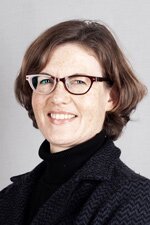
Thomas Van Rompuy took a Master Degree in Political Science and International Relations as well as a Master Degree in Policy Economics, Catholic University. In 2009, he took up the function of International Coordinator at the Federal Public Service for Economy, SMEs, Self-employed and Energy in preparation of the Belgian Presidency of the European Council. In 2010, he started working for Akkanto as a Junior Consultant and was promoted to the function of Consultant in 2011. In 2012, he took up the function of Economic Affairs Advisor at Febelfin, the Belgian Financial Sector Federation. Febelfin represents more than 250 financial institutions which are active in Belgium, including banks, stockbrokers’ firms, lease and factoring companies, investment funds and institutions such as Euroclear and SWIFT. His current function is Febelfin Chief of Staff. In close cooperation with the Febelfin CEO and Chairman, Thomas is in charge of analysing and coordinating priority issues in the field of economics, corporate finance, banking, taxation and external communication. He also contributes to laying down the sector’s position towards the public authorities and various official institutions.
Tuesday 12 November - Ethical issues in genetically modified food: values and risks of biotechnology
Luise O. Fresco (University of Amsterdam, The Netherlands)
Barbara Van Dyck (independent researcher, Belgium)
Moderator: Alma De Walsche
In May 2011 a group of activists entered a piece of land in Wetteren, Belgium, where a genetically modified potato field trial was being carried out in order to protest against the uncritical use of genetically modified organisms (GMOs) for food commercialisation. This protest reflected wider concerns about the extent to which the proliferation of genetically modified food leads to farmers' dependency on large multinational companies, in a situation where GMOs’ risks for environment and public health are unclear and regulatory frameworks are still lacking. At the same time, a number of prominent scientists emphasise the potential of GMOs for increasing food security worldwide.
In this debate, Louise O. Fresco (University of Amsterdam) and bio-engineer Barbara van Dyck will touch on these and other critical issues as they discuss the benefits and pitfalls of GMOs.
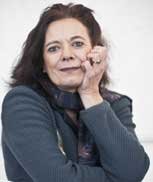
Prof. Louise O. Fresco (1952) was appointed a University Professor at the University of Amsterdam (UvA) in 2006. She has a strong commitment to international development, agriculture and food. Her career includes a PhD cum laude in tropical agronomy (Wageningen), chairs and lectureships at prestigious universities such as Uppsala, Louvain and Stanford, and leading positions within the FAO of the UN. Fresco has extensively published both in academic journals and in the popular media. As a leading thinker, she was invited to speak at the annual TED Conference in Palm Springs in 2009. Read more.

Tuesday 19 November - How 'fair' is Fair Trade Food?
Sushil Mohan (University of Dundee, United Kingdom)
Lily Deforce (Max Havelaar, Belgium)
Moderator: John Vandaele
ppt Mohan
ppt Deforce
Although Fair Trade Food still only represents a minor proportion of total food product sales, its recent growth and diversification have been remarkable. Especially among North American and European consumers there is much public support for the claims of Fair Trade Food: it guarantees farmers fair prices, a higher level of income security, and better labour conditions, thereby reducing poverty. However, these claims can be questioned. Does Fair Trade Food really alleviate poverty, to a greater extent than 'traditional' ways of producing food? To what extent does it benefit the “poorest” producers? Are there alternatives?
In this debate, Sushil Mohan (University of Dundee) who is the author of 'Fair Trade Without the Froth' will enter into discussion with Lily Deforce (Fairtrade Max Havelaar Belgium).
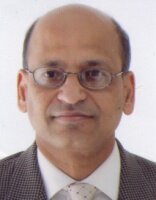
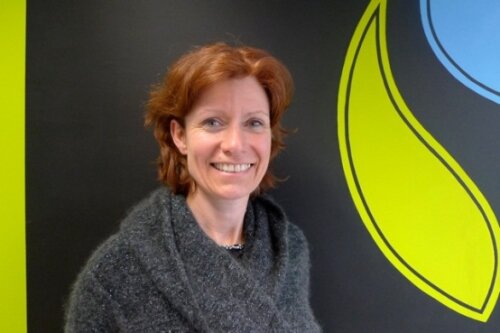
Tuesday 26 November - ANNO 2030: what to serve when you have nine billion mouths to feed?
Mark Post (Maastricht University, The Netherlands)
Arnold van Huis (Wageningen University, The Netherlands)
Moderator: Alma De Walsche
ppt Post
With our global population set to reach close to 9 billion by 2030 and global meat consumption expected to double by 2050, the hunt is on to find new and sustainable ways to still the hunter-gatherer instincts that are driving a growing middle class around the world to these very inefficient sources of protein in the form of pre-packaged sirloin or sausage. Currently 70% of the world’s arable land is devoted to growing feed for livestock, and livestock furthermore emits 20% of all greenhouse gases. Since only 5 % of the population in industrialized countries seems to be amenable to vegetarianism, other breakthrough solutions are required. In this debate we try to think out of the box by inviting two international experts on alternative sources of proteins.
Our first speaker, Mark Post (Maastricht University), received international attention when he served the world’s first test tube burger in August this year. Using stem-cell research, he wants to move the meat industry out of the farm and into the lab. Our second speaker, Arnold van Huis (Wageningen University) firmly believes that eating insects is a healthy and delicious way out of a global food crisis. As the primary author of “Het insectenkookboek” he tries to break the Western taboo on the consumption of insects and will surely convince you to try a grasshopper or two.
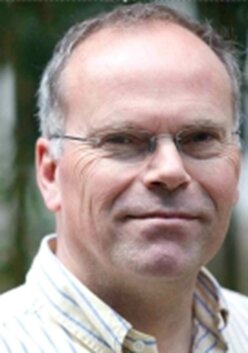
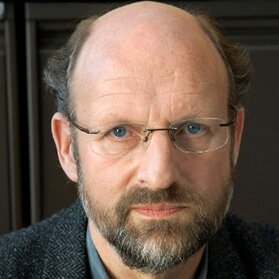
FAO (2013) Edible insects, Future prospects for food and feed security
Marloes L.P. Langelaan, Kristel J.M. Boonen, Roderick B. Polak, Frank P.T. Baaijens, Mark J. Post, Daisy W.J. van der Schaft (2010) Meet the new meat: tissue engineered skeletal muscle, Trends in Food Science & Technology, Volume 21, Issue 2, Pages 59-66
Post, M.J. (2012) Cultured meat from stem cells: Challenges and prospects. Meat Science 92(3): 297–301.
Godfray HCJ, et al. (2010) Food security: The challenge of feeding 9 billion people. Science 327:812–818.
